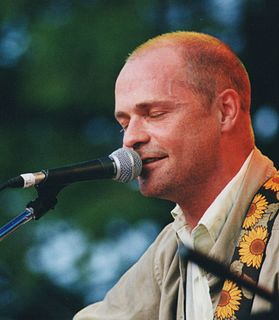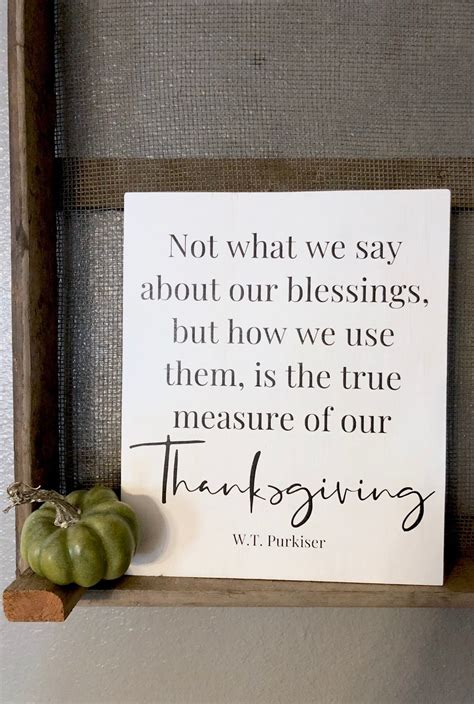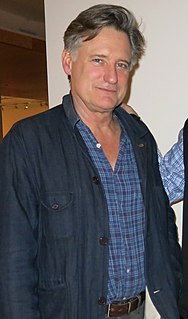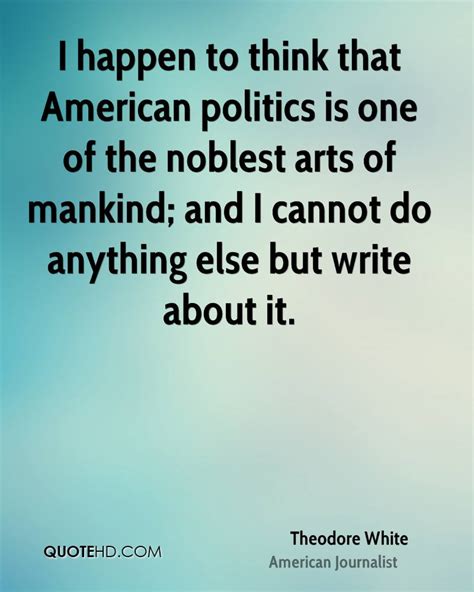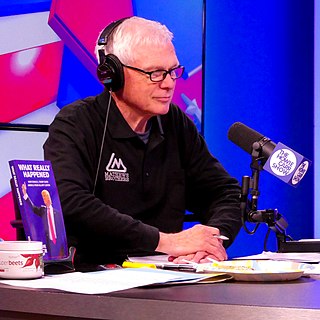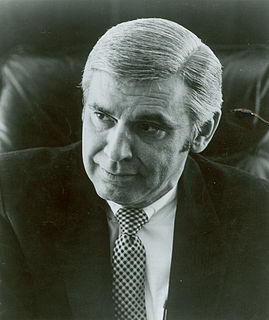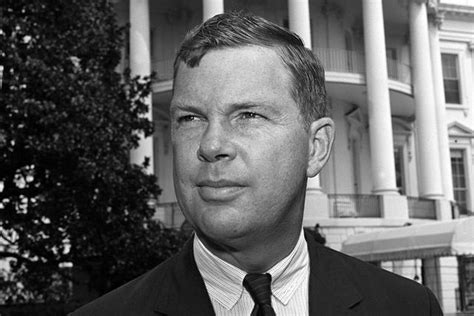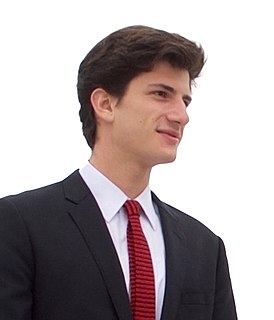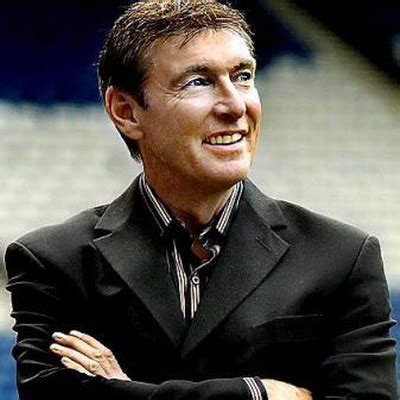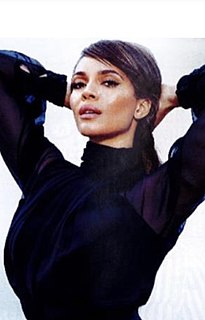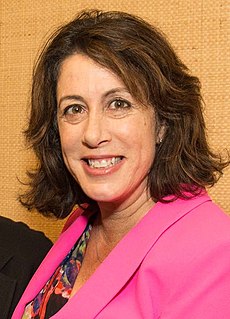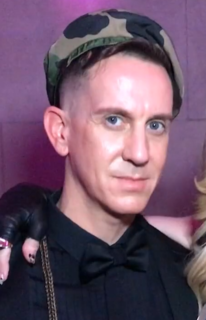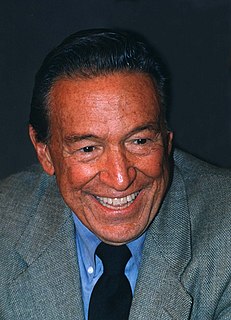Top 922 Kennedy Assassination Quotes & Sayings - Page 14
Explore popular Kennedy Assassination quotes.
Last updated on December 18, 2024.
Harvard's Kennedy School of Government asked me to serve as a fellow at its Shorenstein Center on the Press, Politics, and Public Policy. After my varied and celebrated career in television, movies, publishing, and the lucrative world of corporate speaking, being a fellow at Harvard seemed, frankly, like a step down.
If I'm to be an 'ist' then, like Bobby Kennedy, I'm probably more of a free market capitalist than an environmentalist. Rather than wanting to tell people to be less bad, I'm saying let's make it fair across the board and stop subsidizing the big heavy-polluting fat cats, let's make it a level playing field.
Three American presidents-Dwight D. Eisenhower, John F. Kennedy, and Lyndon B. Johnson-have asked the question: What do we get from aiding Pakistan? Five-Jimmy Carter, George H. W. Bush, Bill Clinton, George W. Bush, and Barack Obama-have wondered aloud whether Pakistan's leaders can be trusted to keep their word.
I was doing this children's theater play, and it was non-Equity. We were out of town to do it at the Kennedy Center, and it was always kind of, 'Well, the producers may have to turn this into Equity,' and that's what happened. It was kind of a silly children's theater play, but that's how I got my card.
Who are we talking about? We're talking about the people that are trying to criminalize Donald Trump. We're talking about the people that are trying to impeach him. We're talking about people who are trying to via innuendo and leak and media assassination, we're dealing with people that are trying to destroy Donald Trump and his press secretary just signaled that they are serious about reaching out to these people to try to get certain things done, legislatively, like infrastructure or tax reform.
I was attacked the other night for being grandiose. I would just want you to note: Lincoln standing at Council Bluffs was grandiose. The Wright Brothers standing at Kitty Hawk were grandiose. John F. Kennedy was grandiose. I accept the charge that I am grandiose and that Americans are instinctively grandiose.
In 'Charade,' there was a big fight. George Kennedy was playing one of his first big heavy roles; he had a hook for a hand, and he was real ugly. Cary Grant was Cary Grant. They were on a slanted roof, a very exciting fight, and we agreed there shouldn't be any music, just the grunts and the action.
The challenge for me was not just the prosthetic work and how to move like an older man would move, but more so how to have 50 years of experience in the workplace and talk to a young Robert F. Kennedy as if he was some political upstart that didn't know what the hell he was talking about. That was the big challenge [in the J. Edgar Hoover m?vie].
It is a tough choice. In war, people die. But when we refuse to confront the enemy, we will face the enemy in New York and Washington, as we did on 9-11. As for responsiblity, of course we stand by our decision to go to war on Iraq. President Kennedy said that friend and foe alike should know where America stands.
I wish I were shyly, quietly intriguing, like Jacqueline Bouvier Kennedy, like someone French and fashionable who knows how to twirl her ladylike locks just so and walk adroitly on kitten heels, who is all gesture and whisper - but I am unfortunately forward and forthright: When I am interested in a man, he absolutely knows it.
In early 1961 a new president, John F. Kennedy, was told by military leaders and civilian officials that the Kingdom of Laos - of no conceivable strategic importance to the U.S. - required the presence of American troops and perhaps even tactical nuclear weapons. Why? Because if Laos fell, Asia would go red from Thailand to Indonesia.
Ambassador Kennedy brings to the Boeing board professional, diplomatic, and global perspectives that are highly valued in our rapidly evolving and increasingly competitive global business environment. Her diversity of experience and accompanying insights will broaden and strengthen our board in its deliberative and oversight roles for the company.
Scott Brown may be the last Republican to win a statewide fight in Massachusetts for a very long time. He caught the machine flat-footed in January 2010 when he out-hustled Martha Coakley and stole the Senate seat Ted Kennedy held all those years. And since then, the Democrats haven't lost a single statewide fight.
Be it enacted by the Senate and House of Representatives of the United States of America in Congress assembled, That (a) the President of the United States is authorized to present, on behalf of the Congress, a gold medal of appropriate design to the family of the late Honorable Leo J. Ryan in recognition of his distinguished service as a Member of Congress and the fact of his untimely death by assassination while performing his responsibilities as a Member of the United States House of Representatives.
Both John F. Kennedy and Nelson Mandela use the same three-word phrase which in my mind says it all, which is ‘Freedom is indivisible. You can’t slice it up, otherwise it ceases to be freedom. You can dislike Charlie Hebdo … but the fact that you dislike them has nothing to do with their right to speak.
The world of TV debates is antiquated. What looked smart and modern in 1960, with Kennedy versus Nixon, looks quaint and over-rehearsed between Obama and Romney. We need a new format; even if we have the same moderators and candidates, there needs to be a more nuanced way for audiences to connect with and shape presidential debates.
Kennedy believed in religious liberty and the separation of church and state. He did not believe in the right of elected officials to impose their religious views on others. He was the first Catholic ever elected president, and he spent much of the 1960 campaign defending his religion and assuring voters he would not take orders from the Vatican.
The one thing that John Kennedy did, above all else, was to energize young people to feel that they wanted to give something to their country. I just hope, for young people of this generation, that they'll experience that feeling once again, that by working on large goals, they can do something more than their own individual ambition.
George W. Bush was passionate about AIDS. And we had a 10-minute talk at the interval of a concert at the Kennedy Center about AIDS. And I was astonished about how well-informed he was and his commitment to AIDS. And so it's the typical thing of don't judge a book by its cover until you have read the book.
President Kennedy has named two Negroes to District Judgeships and appointed Thurgood Marshall to the United States Court of Appeals. When I came to the Department of Justice, there were only ten Negroes employed as lawyers; not a single Negro served as a United States Attorney - or ever had in the history of the country. That has been changed.
Bryce Zabel and I went down the road of revising the Kennedy historical record together on the NBC seriesDark Skies. This time instead of giving new meaning to the established JFK chronology, hes created a brand new one altogether.Surrounded by Enemiesis an exhilarating ride, full of twists and turns that never were, but surely could have been.
For Mitt Romney, the complex question of anti-Mormon bias boils down to the practical matter of how he can make it go away. Facing a traditional American anti-Catholicism, John F. Kennedy gave a speech during the 1960 presidential campaign declaring his private religion irrelevant to his qualifications for public office.
The truth is that many powerful guys have fooled around while working for the people. Dwight Eisenhower, John F. Kennedy, and Warren Harding to name just a few. Grover Cleveland even fathered a child outside of marriage. We all know these things happen. But we don't want them to happen - at least most of us don't. I can't speak for San Francisco.
We got to the moon on Christmas Eve 1968, at the end of a poor year for this country. We had Vietnam. We had civil unrest. We had the assassinations of Robert Kennedy and Martin Luther King. But we went around the moon and saw the far side for the first time. A script writer couldn't have done a better job of raising people's hope.
With FIVE DAYS, Douglas Kennedy has crafted a brilliant meditation on regret, fidelity, family, and second chances that will have you breathlessly turning pages to find out what happened in the past and what will happen next. At once heartbreaking and hopeful, it is a powerful new work of fiction by an internationally acclaimed writer at the height of his powers.
I was nurtured in the church; I went to a Catholic school; I was an altar boy; I went to a Catholic university; I was steeped in the moral tradition of the Catholic Church. My Catholicism plays a very strong role. But I thought President John F.Kennedy answered rather well when he said that ultimately my conduct as a public official does not come ex cathedra from Rome; it comes from my conscience.
The last time I saw Ted Kennedy was a generation after my first meeting, at the Senate subway below the Capitol on Obama's Inauguration Day. He was his usual gregarious and gracious self - with beaming smile and booming voice wishing my husband and me good luck with our pregnancy and expressing his excitement about the new president.
I don't want anybody to be under a misunderstanding. Donald Trump never even said the word "assassination." That was the word used by Hillary Clinton in 2008, which CNN is calling a gaffe. (impression) "But Trump meant it! Yeah, Trump, he meant it." With Hillary, "It was a gaffe! We all know Hillary Clinton, and we all know Hillary Clinton didn't really mean what she said." Yeah, right. Double standards.
Jean [Kennedy Smith, JFK's sister] told me she thinks the whole sports angle has been overplayed, that politics was central to him. This nonsense that he only went into politics because his older brother Joe was killed is not true. He was determined he was going to be in politics, but he would have waited his turn.
When Kennedy could not get the civil rights bill passed - and he was the big liberal - Lyndon Johnson came in and it got passed, and he was the conservative and the southerner. So sometimes in politics, to get something done, it takes a special kind of knowledge and a special kind of person, but it doesn't always follow the party lines.
I wrote a one-act play - I can't remember the name of it, but it was really about the way women are perceived as leaders. In the play, Catherine the Great would say things like, "You know, John F. Kennedy had extramarital affairs and no one says anything. But I bang one horse and now I'm a horse banger for all eternity? That's it? That's what I am?"
Both President Kennedy and President Reagan were roundly criticized by parts of the foreign policy establishment that felt they were being weak by engaging our adversaries. So some of it is built into a political lexicon that makes you sound tougher if you don't talk to somebody, and rather, very loudly, wield a big stick.
Here's the truth: the Soviet Union had thousands of nuclear weapons, and Iran doesn't have a single one. But when the world was on the brink of nuclear holocaust, Kennedy talked to Khrushchev and he got those missiles out of Cuba. Why shouldn't we have the same courage and the confidence to talk to our enemies? That's what strong countries do, that's what strong presidents do, that's what I'll do when I'm president of the United States of America.




